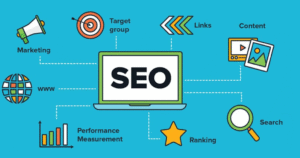How to Become an AI Consultant: Skills, Roles & Career Guide
Artificial Intelligence is redefining how businesses operate- boosting customer experiences, minimizing operational costs, and enhancing decision-making. However, AI integration into...

Artificial Intelligence is redefining how businesses operate- boosting customer experiences, minimizing operational costs, and enhancing decision-making. However, AI integration into business operations is not plug-and-play. That is where AI consultants come into the picture.
An AI consultant connects innovative AI technologies with real-world business needs, helping companies find opportunities, create solutions, and boost performance. Whether you are curious to know about this role or you’re considering a career as an AI consultant, this blog breaks it all down in simple terms.
What Does an AI Consultant Do?
An artificial intelligence consultant plays multiple roles. Although, the responsibilities of this specific role may vary depending on the industry. However, the common responsibilities include:
- Understanding the business challenges, assessing needs and leveraging AI where it can be used effectively.
- Recommending AI Tools: Giving suggestion related to tools or platforms to be used, whether it’s recommendation engines, chatbots, natural language processing (NLP) or predictive analytics.
- Making tailored plans to use AI systems that meet the business goals.
- Connecting with developers, data scientists, and IT teams to ensure successful integration.
- Reviewing system performance and recommending updates or improvements as required.
- Ensuring AI solutions follow data privacy laws and ethical standards.
Why Businesses Need AI Consultants?
Companies are investing more in AI—but without the right tools, strategy, or talent, those investments mostly fail. This is where AI consultants play a main role, especially those equipped with AI consultant training to guide businesses effectively:
- AI is complex: Several organizations lack in-house experts to develop or implement AI systems.
- Customization is key: Off-the-shelf AI tools might not meet the specific business needs.
- Faster ROI: AI consultants bring experience and best practices that speed up project timelines and ensure better returns.
- Competitive pressure: As several companies adopt AI, others are trying to keep up or risk falling behind.
- Risk management: Consultants assist companies prevent costly mistakes, such as utilizing biased algorithms or violating data privacy regulations.
Industries such as retail, healthcare, education, finance, and manufacturing are few of the top adopters of AI consulting services.
Skills Required to Become an AI Consultant
If becoming an AI consultant is your desired career path, having a strong foundation in both technology and business is crucial. Earning a recognized artificial intelligence consultant certification can also give you a competitive edge, validate your expertise, and increase trust among clients or employers.
Technical Skills:
- Programming knowledge: Python, R, or Java.
- Data handling: SQL, data visualization tools like Power BI or Tableau.
- Understanding of AI/ML concepts: Neural networks, classification, regression, clustering, etc.
- Familiarity with tools: TensorFlow, PyTorch, Scikit-learn, Azure AI, AWS SageMaker, or Google Cloud AI.
Business & Soft Skills:
- Strategic thinking: Ability to implement AI solutions as per the business objectives.
- Consulting mindset: Proficient in asking the right questions and addressing client issues.
- Communication skills: Explaining complex AI concepts in easy language.
- Project management: Managing timelines, stakeholders, and budgets.
- Ethical awareness: Ensuring responsible use of AI technologies.
How to Become an AI Consultant
There is no definite path to follow to prepare yourself for this job role. However, by following below given steps you can achieve your career goal:
- Gain fundamental knowledge: Learn AI basics through trusted online platforms.
- Gain Experience: Grab the opportunity to work on real-world AI projects by freelancing, contributing to open-source, or doing internships.
- Understand Business Strategy: Learn about businesses operations and make right decisions. A course in business analytics can be helpful.
- Create a Portfolio: Develop a personal website or GitHub page showcasing your case studies and project work.
- Stay Updated: The AI landscape keep evolving. Read industry reports, attend webinars, and follow AI leaders on LinkedIn or Twitter.
A professional AI consultant course can also boost your career. Self-paced programs like Certified Artificial Intelligence Consultantby USAII®, offers globally recognized training and credentials as this validates your skills and prepare you for real-world challenges.
Final Thoughts
As businesses go hand-in-hand with digital transformation, one role is quietly becoming a game-changer: the AI consultant.
It’s a career that blends curiosity, creativity, and real-world impact. If you’re someone who thrives on solving complex problems, loves working at the intersection of technology and strategy, and gets excited by the idea of shaping the future—AI consulting might just be your calling.
FAQs
Q1: Do I need a degree in AI or Data Science to become an AI consultant?
No, you don’t require a specific degree in AI or Data Science. Many AI consultants have backgrounds in engineering, computer science, business, or even economics. What you really need to understand how AI works and how to utilize it to solve real business problems.
Q2: How much can AI consultants earn?
Depending on experience, industry, and location, earnings can vary. In the U.S., AI Consultant’s estimated total pay is $1,97,988 per year, with an average salary of $1,28,550 per year. (Glassdoor)
Q3: Can I work as a freelance AI consultant?
Yes, undoubtedly. Companies like startups and small businesses, keep looking for talented freelance consultants for specific projects. Simply, create a good portfolio and ensure strong presence on platforms such as Upwork, or LinkedIn.
Q4: What challenges do AI consultants face?
Generally,AI consultants face challenges like low-quality data, clients expecting too much, teams resisting change, or concerns about fairness and bias in AI systems. Being clear, honest, and good at presenting things really helps in handling such situations.



